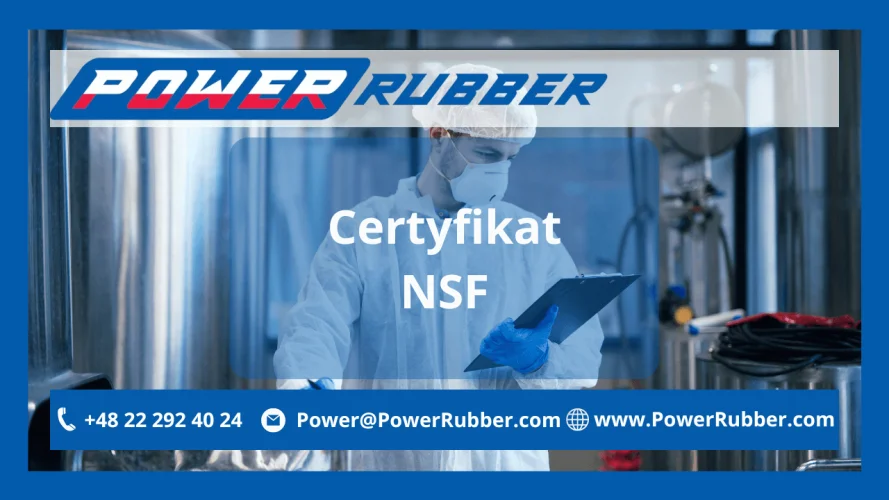Certyfikat NSF - co to jest? Norma, certyfikacja NSF
NSF-Certified Products Approved for Use in the Food Industry
NSF (National Sanitation Foundation) is a non-profit public health organisation established in 1944. Its mission is to promote public safety by setting high standards for food, water, consumer products and sanitary environments.
What Is NSF Certification?
NSF certification guarantees that a product is approved for use in the food industry and meets NSF standards for health and safety. All NSF-certified products undergo rigorous testing and auditing before being approved for use in food processing facilities.
The certification process includes material analysis, food product testing and a review of production methods. The NSF mark confirms that food-contact products have been tested under strict hygienic standards. If NSF inspectors find that a product no longer complies with public health requirements—during their annual or unannounced inspections—the certification is revoked.
The NSF symbol confirms that the product meets all NSF International standards. Every certified product is allowed to carry the NSF mark, which is recognised worldwide, including in the UK.
Food Industry Approval Categories
Products registered with NSF are labelled with both the NSF logo and category codes that define their approved applications in food processing environments. These categories include:
NSF C1
The NSF C1 category is for products used in non-food processing areas or outside food processing plants. These products are suitable for use in spaces not directly involved in food production.
NSF A7
NSF A7 refers to metal surface polishers used in food processing environments, but only on surfaces that do not come into direct contact with food.
Lubricant Classifications: NSF H1, H2 and H3
NSF has created strict classifications for lubricants used in the food industry. Each category defines what ingredients are allowed and how the lubricant can be applied.
NSF H1 – Food-Grade Lubricants
NSF H1 lubricants are safe for incidental food contact. They can be used in situations where there is a slight possibility of the lubricant touching food, with a maximum allowable limit of 0.001%. These lubricants are odourless, tasteless and physiologically inert. They are formulated with FDA-approved ingredients and are used in equipment such as mixers, conveyors, pumps and machines used for slicing, peeling and cooking.
NSF H2 – Lubricants for Non-Food Contact Areas
NSF H2 lubricants are used where there is no possibility of contact with food, beverages or pharmaceuticals. Common applications include forklift components and machine parts. H2 lubricants must not contain carcinogens, mutagens, mineral acids or heavy metals (e.g., arsenic, antimony, mercury, lead, cadmium). NSF defines strict toxicological criteria that must be met for H2 approval.
NSF H3 – Edible Oil Lubricants
NSF H3 products contain only edible oils deemed safe for human consumption by the FDA. Examples include sunflower, soybean, cottonseed and corn oils. These are used as rust preventatives and corrosion inhibitors on equipment like hooks, conveyors and carts. They are fully biodegradable and food-safe.
NSF-Certified O-Rings
Discover NSF-Certified O-Rings and Seals from Power Rubber
At Power Rubber, we supply NSF-certified O-rings and gaskets approved for contact with drinking water and food. These products are tested by independent laboratories and meet the strict criteria of the National Sanitation Foundation.
Our rubber compounds are tested for potential leaching of contaminants during prolonged exposure to drinking water. This ensures safe use in any system handling food or potable water.
By choosing NSF-certified O-rings and seals from Power Rubber, you can be confident that the materials are clean, non-toxic and fully compliant with hygiene and food safety regulations.
For more information or to place an order, contact us by phone at +48 22 292 40 24 or +48 50 516 03 03, via email (Power@PowerRubber.com), or through our contact form.
